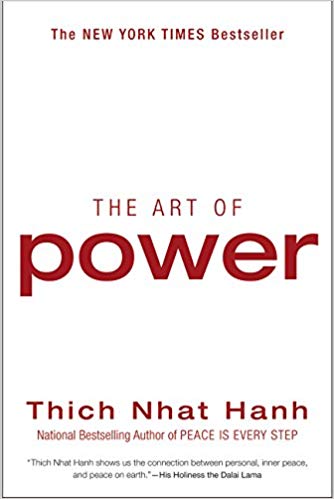
Here is a story which Thich Nhat Hanh recounts in his book, The Art of Power:
The Buddha told the story of a merchant, a widower, who went away on a business trip and left his little boy at home. While he was away, bandits came and burned down the whole village. When the merchant returned, he didn’t find his house; it was just a heap of ash. There was the charred body of a child close by. He threw himself on the ground and cried and cried. He beat his chest and pulled his hair.
The next day he had the little body cremated. Because his beloved son was his only reason for existence, he sewed a beautiful little velvet bag and put the ashes inside. Wherever he went, he took that bag of ashes with him. Eating, sleeping, working, he always carried it with him. In fact, his son had been kidnapped by the bandits; three months later, the boy escaped and returned home. When he arrived, it was two o’clock in the morning. He knocked on the door of the new house his father had built. The poor father was lying on his bed crying, holding the bag of ashes, and he asked, “Who is there?” “It’s me, Daddy, your son.” The father answered, “That’s not possible. My son is dead. I’ve cremated his body and I carry his ashes with me. You must be some naughty boy who’s trying to fool me. Go away, don’t disturb me!” He refused to open the door, and there was no way for the little boy to come in. The boy had to go away, and the father lost his son forever.
After telling this story, the Buddha said, “If at some point in your life you adopt an idea or a perception as the absolute truth, you close the door of your mind. This is the end of seeking the truth. And not only do you no longer seek the truth, but even if the truth comes in person and knocks on your door, you refuse to open it. Attachment to views, attachment to ideas, attachment to perceptions are the biggest obstacle to the truth.”